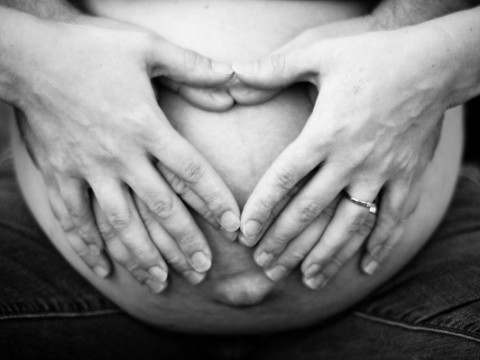Are You Even Still Interested in Sex?
While some women lack interest in sex during pregnancy, others actually notice an increase in sexual desire. Mothers-to-be may be concerned over the risks of having sex during pregnancy. Sex is usually considered safe during a normal pregnancy.

What is a normal pregnancy?
If a woman is unsure over whether her pregnancy is considered normal or not, she should consult with her OB/GYN, midwife or health care physician before having sex. A mother who has a low-risk pregnancy is not at risk for preterm labor or other pregnancy complications. Women who are considered low-risk can continue having sex for as long as they comfortable.
Can sex or orgasms cause a miscarriage or harm to the baby?
Both women and their partners may be worried that sex in early pregnancy can lead to miscarriage. In the first trimester, most miscarriages are the result of a chromosomal abnormality. In a normal, healthy pregnancy, having sex will not increase the risk of a miscarriage. Orgasms can cause uterine contractions; however, they are not the same type of contractions that cause labor. The baby is protected by amniotic fluid and a mucous plug, so sex will not harm the unborn baby.
Is it necessary to use protection?
Couples in a mutually monogamous relationship, where neither partner has a history of sexually transmitted infections, can have sex without using protection. Women should avoid having sex with new partners during pregnancy. If the expectant mother contracted a sexually transmitted infection from a new partner, it would risk her health and the health of her unborn child. If a woman does have sex with a new partner, or there is any risk she may contract an infection, condoms or another method of barrier protection must be used.
When is sex not safe?
Oral sex is considered safe, as long as the woman’s partner does not blow air into her vagina. Doing so could create a blocked blood vessel due to an air bubble (air embolism). In situations when there is a risk to the health of the mother or baby, she should not have sex. A woman’s physician may advise her to temporarily refrain from having sex or recommend she abstain from sex until after the baby is born. Risk factors include:
- A partner who may have a sexually transmitted infection
- Risk for miscarriage, due to vaginal bleeding, a threatened miscarriage or prior history
- Preterm labor, including contractions or leaking of amniotic fluid
- Incompetent cervix
- Multiple fetuses
- Placenta previa or a low-lying placenta
Is it normal to not be interested in sex?
It is completely normal for women to experience times when their desire for sex increases and points when their desire seems nonexistent. During the first trimester, some women are overwhelmed by nausea and fatigue, which can leave the mother-to-be feeling to exhausted for sex. As the second trimester approaches, some women regain energy levels and experience increased blood flow to their sexual organs, which may lead to an increased desire for sex. Towards the later stages of pregnancy, women may feel awkward with the additional weight they have gained. They may also have back pain, leg cramps and fatigue, which can lead to a decrease in sexual desire.
Thank-you for reading this post. Please feel free to leave your thoughts in the comment section below.